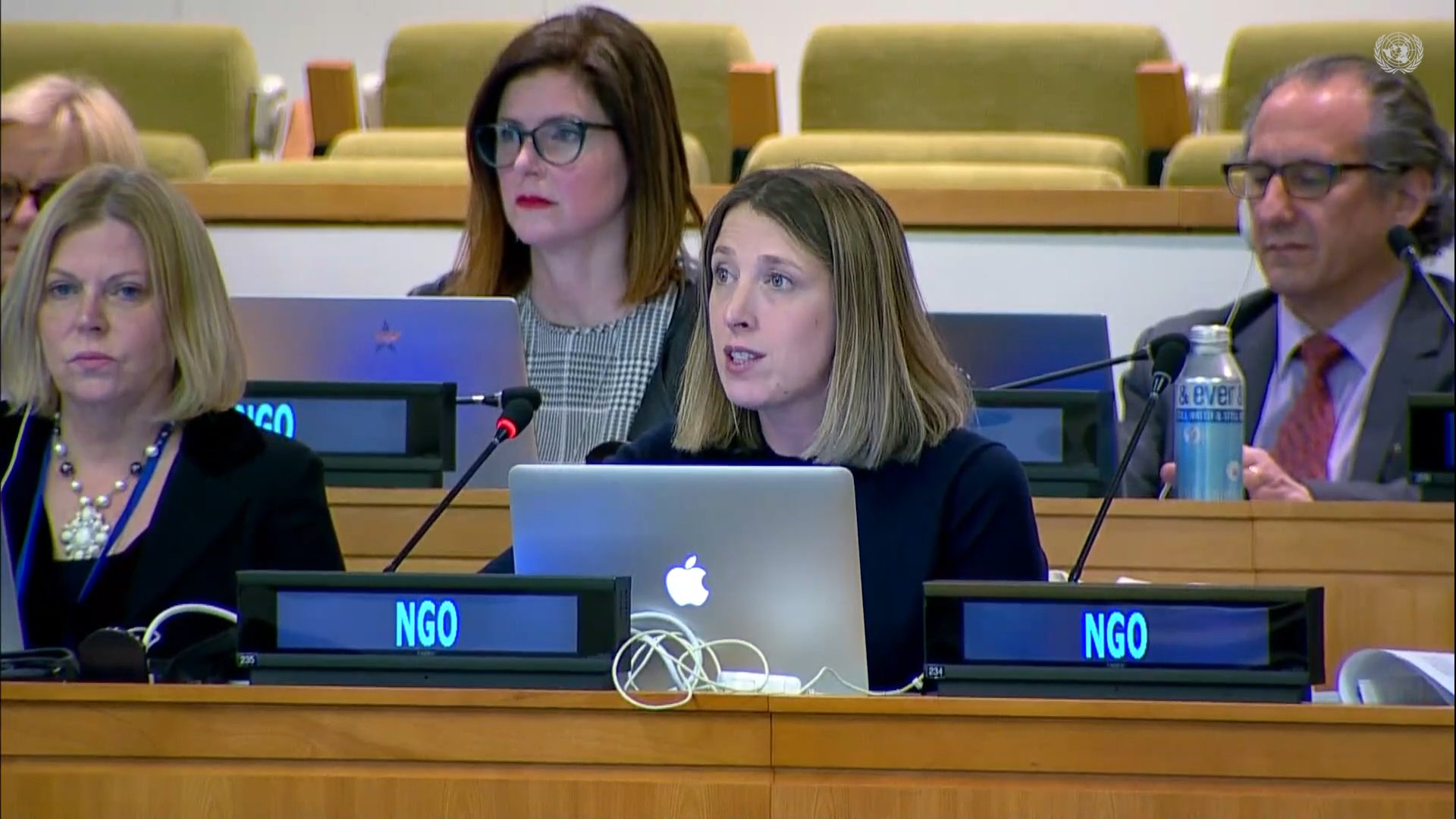Marijke De Pauw, HelpAge’s Global Rights Advisor gives us the overview.
This year marks a decade since the UN first asked governments to present *at the earliest possible date* the main elements of a UN Convention “to protect and promote the rights and dignity of older persons”.
Ten years on and no progress has been made.
When member states met in New York in April for 12th Open-Ended Working Group on Ageing (OEWGA), civil society feared the lack of progress would continue.
Did it? Yes and no. While the same obstacles hampered the OEWG’s work, there were also encouraging developments that have boosted momentum.

Marijke De Pauw delivering the joint statement at the OEWG-12. © GAROP
More countries call for a convention
As in previous years, some Member States expressed their objection to an international legally binding instrument. A large number also referred to the need to implement existing instruments first, such as the Madrid International Plan of Action on Ageing. Yet 18 Member States expressed their support for a convention. Encouragingly, Austria, Bolivia, Burundi and Turkey explicitly supported a binding instrument for the first time. Nigeria also made a very strong statement in favour of a Convention, and after a few years of remaining silent, Bangladesh now clearly reconfirmed its support as well.
UN High Commissioner demands action
An important highlight was the strong statement by UN High Commissioner for Human Rights, Michelle Bachelet. She stressed that today more than ever, older people need stronger protection to enjoy fully their human rights yet international legal frameworks still render them invisible. She called for “concrete and decisive steps to promote and protect the rights and dignity of older persons.” And importantly, those steps “needs to be guided by the voices and lived experience of older persons themselves.”
Civil society must keep up the pressure
We all have a part to play in ensuring this renewed momentum is matched by action. Civil society has been the driving force behind the OEWG and behind progress made so far. In light of these positive developments, we must be hopeful but vigilant, optimistic but strategic, as we continue our efforts in strengthening the rights framework for older people worldwide.
Read more about our work to create a society for all ages.
